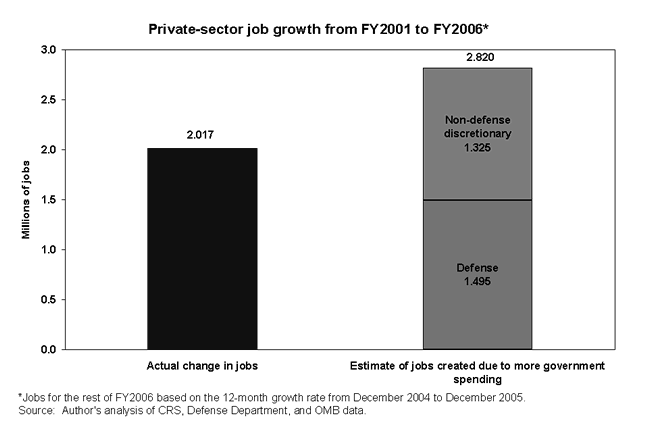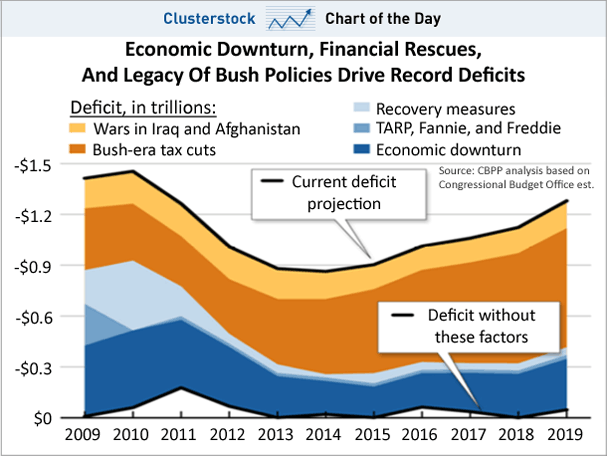Sluggish private job growth indicates failure of tax cuts
Changes in tax law since 2001 reduced federal government revenue by $870 billion through September 2005. Supporters of these tax cuts have touted them as great contributors to growth in jobs and pay. But, in reality, private-sector job growth since 2001 has been disappointing, and a closer look at the new jobs created shows that federal spending—not tax cuts—are responsible for the jobs created in the past five years.
If tax cuts have created jobs at all since 2001, it will have happened in the private sector. Assuming that job growth in 2006 matches the Bush Administration's projections, the economy will have added about 2.0 million jobs to the private sector from FY2001 through FY2006. But how many of these two million jobs actually can be attributed to tax cuts and how many to increased government spending—particularly increased defense spending—in this period?

Based on Defense Department estimates of the number of private-sector jobs created by its own spending, we project that additional defense spending will account for a 1.495 million gain in private sector jobs between FY2001 and FY2006. Furthermore, increases in non-defense discretionary spending since 2001 will have added yet another 1.325 million jobs in the private sector, for a total of 2.82 million jobs created by increased government spending. Increased mandatory government spending—which is not even included in these estimates or the accompanying chart—would account for even more job creation. The mere fact that the projected job growth resulting from increased defense and other government spending exceeds the actual number of jobs projected to be added to the economy through 2006 clearly indicates that the tax cuts hardly seem plausible as the engine of the modest job growth in the economy since 2001.


